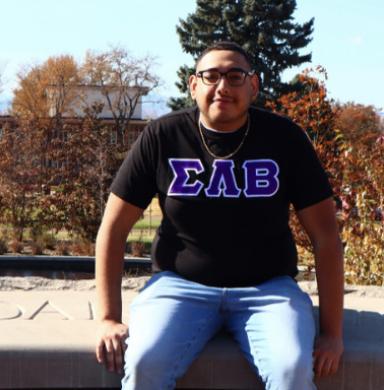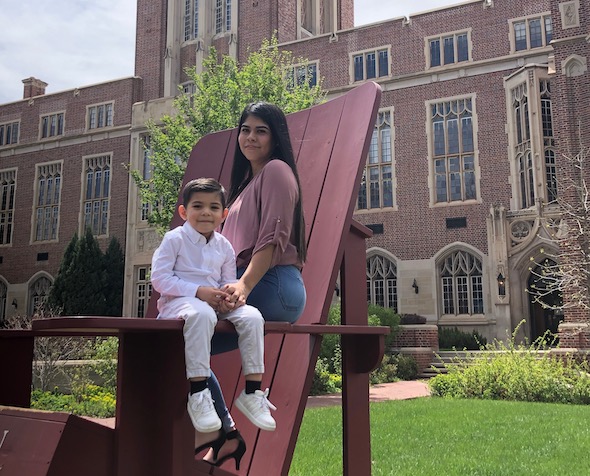First-Gen Student Finds Community and Belonging in the Liberal Arts
Sociology and criminology major Miguel Jaramillo-Frias cares about connections — with his peers, with his campus, with his community. Now in his junior year, Jaramillo-Frias’ campus communities, as well as his minors in Critical Race and Ethnic Studies (CRES) and history, have helped him shape his University of Denver networks and his future.
As a first-year student, Jaramillo-Frias was a computer science major, living at home; he felt disconnected from the campus community and was experiencing a lot of imposter syndrome, both in his computer science courses and in the “PWI [Predominately White Institution] feeling” he experienced when visiting DU.
He began feeling more connected to the campus community because of organizations on campus including 1GenU, whose orientation event made a big difference: “Being able to have that cohort of students of color and first-generation students around me made me feel that I do belong and [helped] overcome that feeling of imposter syndrome.”
He also began developing a stronger sense of belonging through his growing passion for the liberal arts. As he continued taking courses, Jaramillo-Frias realized that he felt more in tune and happier with his sociology, criminology and other liberal arts courses.
One such course was Immigration in the Twentieth Century United States with Elizabeth Escobedo, which includes a service-learning component with Casa de Paz, an organization that offers shelter and support for immigrants recently released from detention centers. Jaramillo-Frias and his peers talked with immigrants and helped them get settled in the temporary housing Casa de Paz offered, either communicating in Spanish or using their phones to translate when talking with non-Spanish speaking immigrants.
Jaramillo-Frias says that Casa de Paz offers connections that are essential: “[It’s] hard for released immigrants to step outside their comfort zones after going through those traumatic experiences and reach out for help. Having to navigate themselves home would be impossible.”
For Jaramillo-Frias, his conversations with the immigrants at Casa de Paz offered him new ways to access and understand the subject: “I’m a hands-on person and so being able to see things like that in person enables me to go back to the classroom and see a real-world perspective, and see how the things we’re learning play out in today’s society.”
Experiences like this led Jaramillo-Frias to declare minors in history and Critical Race and Ethnic Studies (CRES), subjects that he says intersect with his sociology and criminology major and with each other. While his history minor gives him an important sense of what happens in the past, he says CRES considers these past events through a different framework and lets him tie those events to what’s going on now and what’s going to happen in the future.
While he’s not yet sure about a career path, Jaramillo-Frias knows that he would like to work with undocumented students or at-risk youth. He’s already doing important community outreach as a member of the Latino-based, multicultural fraternity Sigma Lambda Beta, including a mentorship program with students from Thomas Jefferson High School.
He’s helping students across DU find a place for themselves, organizing events like Taste of Latin America that help students feel more “in tune” with the campus. Wherever he goes in his professional career, he knows he’ll be able to pursue his passions with the support of the communities he’s found at DU.






